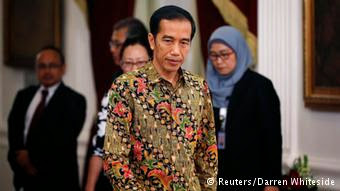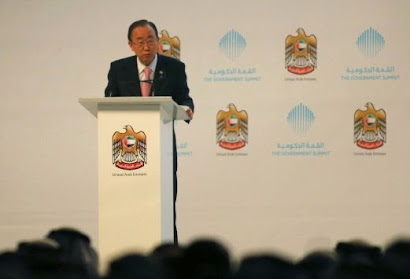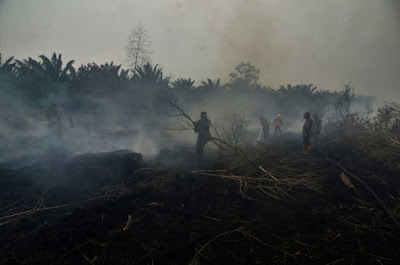 |
| Saudi Arabia on Friday said citizens from 49 countries are eligible for online e-visas or visas on arrival (AFP Photo/Fayez Nureldine) |
Riyadh (AFP) - Saudi Arabia on Saturday said it would impose fines for violations of "public decency", including immodest clothing and public displays of affection, a day after the austere kingdom opened up to foreign tourists.
The
interior ministry said it had identified 19 such "offences" but did
not specify the penalties, as the ultra-conservative Islamic country begins
issuing tourist visas for the first time as part of a push to diversify its
oil-reliant economy.
"The
new regulations require men and women to dress modestly and to refrain from
public displays of affection. Women are free to choose modest clothing," a
statement said.
"The
regulations are meant to ensure that visitors and tourists in the kingdom are
aware of the law relating to public behaviour so that they comply with
it."
Saudi
Arabia on Friday said citizens from 49 countries are now eligible for online
e-visas or visas on arrival, including the United States, Australia and several
European nations.
Kickstarting
tourism is one of the centrepieces of Crown Prince Mohammed bin Salman's Vision
2030 reform programme to prepare the biggest Arab economy for a post-oil era.
But the
conservative country, which forbids alcohol and is notorious for sex
segregation, is seen as an unlikely destination for global tourists aside from
Muslim pilgrims visiting holy sites in Mecca and Medina.
Men and
women must avoid "tight fitting clothing" or clothes with
"profane language or images", read an instruction on an English
language website launched by the tourism authority.
"Women
should cover shoulders and knees in public," it added.
But tourism
chief Ahmed al-Khateeb said foreign women were not obligated to wear the
body-shrouding abaya robe that is still mandatory public wear for Saudi women.
Prince
Mohammed has sought to shake off his country's ultra-conservative image --
lifting a ban on cinemas and women drivers while allowing gender-mixed concerts
and sporting extravaganzas.
The relaxed
social norms in a kingdom have been welcomed by many Saudis, two-thirds of whom
are under 30.
But new
public decency guidelines, first approved by cabinet in April, are widely
perceived to be vague and have sparked public concern that they would be open
to interpretation.
They have
also stoked fears of a revival of morality policing.
Saudi
Arabia's religious police once elicited widespread fear, chasing men and women
out of malls to pray and berating anyone seen mingling with the opposite sex.
But the
bearded enforcers of public morality, whose powers have been clipped in recent
years, are now largely out of sight.
Saudi Arabia is attempting a comeback on the global stage one year after journalist Jamal Khashoggi's murder, but the crisis has weakened it and undermined its de facto leader's ambitious reforms, analysts say https://t.co/em7O5M25Ec pic.twitter.com/ZKdK9Nqwa6— AFP news agency (@AFP) 29 september 2019
A personal bodyguard of Saudi Arabia's King Salman has been shot dead and seven others wounded, including security forces, during an altercation at a friend's home, authorities said https://t.co/25K67KmJ0d pic.twitter.com/SKz9nsf8dB— AFP news agency (@AFP) 29 september 2019





















